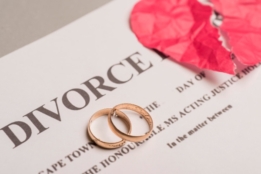Table of content
KEY TAKEWAYS
- Property owned before marriage in California is considered separate property.
- There are ways separate property can become part of the community property during a marriage.
- Anything that is considered community property jointly owned and subject to equal division in the event of divorce.
- You can take various steps to protect your separate property.
- The ins and outs of who has rights to community and separate property during and after marriage are complex, so consult a family law attorney for expert advice.
What Happens To Property Owned Before Marriage In California
By default, property owned before marriage in California is considered separate property. This means that property acquired before marriage remains the sole property of the original owner, and the other partner has no rights to it in the event of a divorce.
However, what happens to property owned before marriage in California is frequently more complex than this. There are important nuances to the community property laws:
1. Commingling: If funds or assets considered separate property are mixed with community property in any way, it becomes difficult to distinguish between what is separate and community property. For example, income generated from separate property might be used to improve or maintain the marital home.
2. Transmutation: Spouses may agree to change the character of a property from separate to community, or vice versa, through a legal process called a transmutation agreement.
3. Appreciation: The original separate property remains separate, but if it appreciates in value during the marriage, particularly due to marital efforts or funds, then that increased value may be considered community property.
We can offer more specific advice tailored to your circumstances. You could also consult with a family law attorney in California who can provide specialist guidance on the complexities of what happens to property owned before marriage in California.

Can Your Wife Take The House If You Bought It Before Marriage In California?
If you owned property in California before your marriage, it typically retains its status as separate property. You can choose to add your spouse’s name to the deeds if you wish, effectively converting it into community property. However, as discussed in the previous section, community property laws can become complex under various circumstances, such as:
- Commingling
- Transmutation
- Appreciation
To safeguard the separate status of property acquired before marriage in California, it’s advisable to consult a family law attorney. They can guide you through the necessary steps to prevent the commingling of separate property with community assets. Open communication with your spouse is essential as there may be various reasons for choosing to maintain separate property.
In summary, there’s a possibility that some or all of the property obtained before marriage may be deemed community property in the event of a divorce. In such cases, it would be subject to equal division. If the need arises, we can assist in facilitating a quick sale to divide assets during divorce proceedings.
The Difference Between Community Property Vs. Separate Property
To understand what happens to property owned before marriage in California in the event of divorce, you need to comprehend the distinction between community property and separate property. Here are the defining characteristics of community property:
- Ownership: Community property is all assets acquired during a marriage whilst residing in California. This includes income, assets purchased and debts incurred.
- Ownership rights: Both spouses maintain equal ownership rights over all community property.
- Division during divorce: All community property is divided equally between spouses in the event of divorce.
Conversely, here are the main characteristics of separate property:
- Ownership: Separate property involves all assets and debts acquired by a spouse before the marriage, after being legally separated, or in the form of inheritance or personal gifts.
- Ownership rights: As long as the separate property is not commingled into the community property, it remains the sole property of the owning spouse.
- Division during divorce: Separate property is not divided as part of divorce proceedings, but you may require evidence that it has remained separate property.
These are the general principles in California, a community property state. However, it’s important to note that many complexities can blur the lines between separate and community property. Seek legal advice from a family law attorney to fully understand your situation.
Is The House You Owned Before The Marriage Your Separate Property?
As we have established, the house you owned before marriage in California is considered separate property by default, not part of the community property of the marriage. However, it’s important to understand that this can become more complex, especially if the marriage lasts for an extended period. Over time, there’s an increasing likelihood that the property may become commingled with the community assets, or at the very least, it can become more challenging to prove that it hasn’t.
If your intention is to maintain separate property throughout the marriage, you need to take specific steps to ensure it. As a diverse team of real estate professionals, we have a strong understanding of the options available for achieving this. Moreover, our network includes family law attorneys who can provide expert advice. If you’re considering selling a house that is not part of the community property, feel free to reach out to us for assistance.
Tips For Protecting Your Separate Property
While it’s crucial to seek advice from a family law attorney to address your unique situation, there are some general recommendations for safeguarding your separate property. If you’re concerned about what happens to property owned before marriage in California, here are some key considerations:
- Keep it separate: Make a conscious effort to prevent your separate property from mingling with community property. Always be mindful of the source of funds for purchases or loans made as a couple.
- Maintain clear records: To establish that your separate property remains distinct from community assets, meticulous record-keeping is essential. Detailed documentation can be gathered by your attorney in the event of a divorce to prove the property’s separate status.
- Consider a prenuptial agreement: If you and your spouse agree on the treatment of separate property, consider creating a prenuptial or postnuptial agreement to protect its status. These legal agreements, drawn up with an attorney’s assistance, set specific terms that must be followed.

How Long Do You Have To Be Married To Get Half Of Everything In California?
Community property laws in California do not stipulate a specific time period for which a couple must be married before the community property is divided. The laws stipulate that all assets and debts acquired during the marriage are subject to equal division if the couple divorces. However, since each divorce case is unique, there could be various factors that affect this.
Bear in mind that the equal division only applies to assets acquired during the marriage. Thus, with regards to what happens to property owned before marriage in California, that property remains separate and is not subject to any kind of division. We can help if you need to sell a home in Walnut Creek or anywhere else in Contra Costa County, but that will be separate property unless you acquired it during the marriage or took steps to commingle it into the community property.
What Are Your Rights If Your Name Is Not On A Deed But Married In California?
In California, you may still have rights to a property if you are married but your name is not on the deed. California’s community property laws make allowances for various circumstances, so here are your rights in these situations:
- Community property: Most assets acquired during a marriage are considered community property in California. This includes a house purchased during the marriage, regardless of whose name is on the deed. This presumption of community ownership can be rebutted, but convincing evidence is required to prove it.
- Rights during a divorce: If a divorce occurs, all community property is divided equally. Therefore, even if your name is not on the deed, you may have a claim to half of the property’s value if it was acquired during the marriage.
- Rights if your spouse dies: If your spouse passes away, you may have rights to the property even if your name is not on the deed. You may inherit it or at least retain the right to live there, depending on the circumstances and the existence of a valid will.
It is best to consult with an attorney to understand precisely where you stand regarding your rights to a property. Each case is unique, and expert guidance is essential to establish the facts properly.

Does Your Spouse Have A Community Property Interest In The House You Owned Before The Marriage, If So, What Is It?
When it comes to who gets houses in divorce in California, there are several factors to consider. Regarding what happens to property owned before marriage, the default position is that it is separate property. The original owner of that property retains full interest in it, and it is not subject to division during divorce proceedings.
Complexities arise when you consider what has occurred during the marriage concerning the property in question.
- If funds related to the separate property have been commingled with community property, distinguishing between the two becomes challenging.
- Similarly, if community property has been used in any way to maintain or upgrade the separate property, similar issues can arise.
In the event that any of these scenarios have occurred, it’s possible that all or part of the property will be considered community property, subject to equal division.
This is why seeking professional advice from a family law attorney is crucial. Every situation is unique, so they can examine the specifics and provide tailored advice. They can also suggest ways to keep separate property separate, or prove that it has been maintained separately.
Frequently Asked Questions
What Happens To Property Owned Before Marriage In California
By default, that property remains separate and is not subject to equal division in the event of divorce. However, there are various ways that property can become part of the community property.
Is The House You Owned Before The Marriage Your Separate Property?
Yes it is. But you will need to take steps to maintain its separate status during the marriage, and keep detailed records that prove it.
Can Your Wife Take The House If You Bought It Before Marriage In California?
No, but it is possible that she might have some interest in the property if it was not carefully maintained as separate property throughout the marriage.


































































